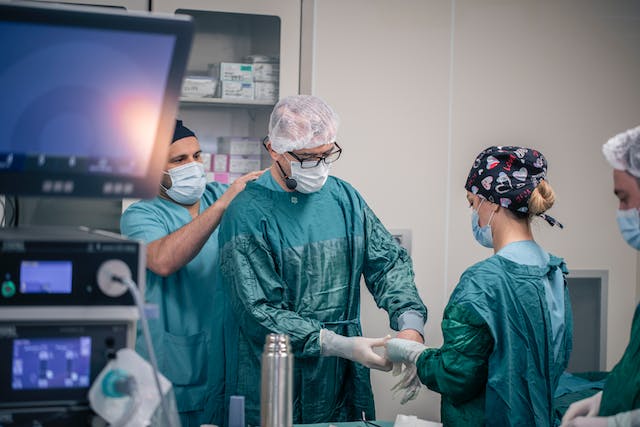Attracting Talent: 9 Tips for Crafting Compelling Job Descriptions for Healthcare
According to AAMC, the United States is anticipated to experience a deficit of around 124,000 physicians by 2034, with a higher demand for physicians surpassing the available supply. It goes without saying that attracting the right doctors is going to take a lot more than listing a generic job posting.
The job description serves as a roadmap, outlining not just the technical skills required but also the intangible qualities crucial for success in a field where compassion, adaptability, and resilience are as essential as clinical expertise. It’s a task that demands foresight, precision, and a deep understanding of the intricate needs within the healthcare sector.
How to Craft the Best Job Description
Crafting a compelling job description for healthcare roles requires a comprehensive approach that effectively communicates both the technical requirements and the broader expectations of the position. Here are some key tips:
Clear Job Title and Summary: Begin with a concise, accurate job title followed by a summary outlining the primary purpose of the role, the scope of responsibilities, and the impact it holds within the healthcare organization.
Detailed Responsibilities: Provide a comprehensive breakdown of day-to-day duties, emphasizing both clinical tasks and non-clinical responsibilities. For physicians, nurse practitioners, and other healthcare roles, this might include patient care, diagnosis, treatment planning, record-keeping, collaboration with multidisciplinary teams, and participation in research or teaching programs.
Qualifications and Requirements: Specify the necessary qualifications, certifications, and experience required for the role. Highlight educational backgrounds, licenses, and any specialized training or expertise needed. For instance, for physicians, specify board certifications, residency training, and any preferred specialties. For nurse practitioners, mention the required advanced nursing degrees and certifications.
Soft Skills and Competencies: Highlight the soft skills essential for success in healthcare, such as empathy, communication, teamwork, adaptability, and problem-solving. These traits are often as critical as technical expertise in providing excellent patient care.
Company Culture and Values: Integrate information about the organization’s culture, mission, and values to attract candidates who align with these principles. Highlight any unique programs, technology, or patient care approaches the healthcare facility employs.

Benefits and Perks: Outline the benefits, compensation packages, student loan payment assistance, continuing education opportunities, paid parental leave and career advancement prospects. Healthcare professionals often consider these aspects alongside the job description itself.
Clarity and Accessibility: Ensure the description is easy to read and understand, using clear language and bullet points to organize information. Avoid jargon and acronyms that might be unfamiliar to applicants outside the field.
Compliance and Legal Requirements: Adhere to legal and compliance standards, especially when mentioning equal opportunity employment, ADA compliance, and any specific regulations relevant to healthcare hiring.
Review and Feedback: Before finalizing the job description, seek input from current healthcare professionals or HR specialists. Their insights can ensure the description accurately represents the role and attracts the right candidates.
Momentum: Healthcare Recruiting that Works
Finding the perfect healthcare professional isn’t just about qualifications and experience; it’s a delicate balance of skill and precision. Crafting the ideal job description for such a role demands a nuanced understanding of the healthcare landscape, a keen eye for the unique blend of expertise needed, and an adeptness at communicating these requirements. Luckily, partnering with Momentum Healthcare Staffing ensures you have experts on your side—we handle the job description, the credentialing and all of the other intricate details involved in hiring qualified physicians, nurse practitioners and other healthcare specialists.
Sources:
Aamc.org
frac.tl
openai.com
















Recent Comments